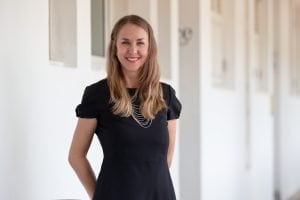- Sponsored Content
 Learning that your child has cancer often makes parents feel like their world has been turned upside down. Everything in their life may suddenly feel out of control. Your initial thoughts may be “How could this have happened to my child?” and “How will we get through this?”
Learning that your child has cancer often makes parents feel like their world has been turned upside down. Everything in their life may suddenly feel out of control. Your initial thoughts may be “How could this have happened to my child?” and “How will we get through this?”
A diagnosis of cancer can be a frightening and isolating experience. In the face of such adversity, support groups become invaluable sanctuaries where parents can find solace, share experiences, and draw strength from the collective resilience of a community that understands the unique challenges they face.
What happens in a support group session?
We most typically spend the time sharing our experiences in our confidential and non-judgmental space, although sometimes we end up just catching up (speaking informally with others in a similar position to you can feel hugely relieving). People attending the group tend to share memories and experiences of cancer, both happy and difficult – however, there are no rules about having to speak. You are more than welcome to attend and just listen. The only thing we will invite of you is to let us know your name and your child’s name.
Our support groups are different to grief counselling and 1-2-1 therapy given that it is more focused on sharing with others who are experiencing a child with cancer.
The Ethos of our support group sessions
Sharing experiences helps
The whole point of our supportive events is to bring together people who have experienced something similar. Our support groups create a space for peer support where people can speak with others in a similar position and hear how they cope or do not cope. This is different to individual support, which can be very helpful but doesn’t always allow for hearing from and sharing with others.
Our feelings are normal
Our events aim to let people know that their experiences, as painful as they are, are a normal part of the process. For example, it is not unusual to experience a whole host of feelings, worries and body changes when stressed, anxious or grieving, and knowing that that’s normal can be a relief. Knowing that our experiences do not mean we are going crazy is hugely important.
Processing does not have a set time-limit
The most well-known psychological models of grief and/or loss are staged models, which indicate that having a child with cancer involves moving through specific emotions in a semi-linear fashion. We have learned that this is not the case. It is a rollercoaster in which you will be up and down at unpredictable points in time.
Continuous and reliable support
Our support is there for parents with children with cancer. The continuity that our events provide allows people to get support at any point they need it, safe in the knowledge that the space will always be there.
Led by members
Our support groups don’t have an agenda; the sessions are led by the people who come along and what they feel they need to talk about on the day. Some of our team members will be there to help facilitate events, but it’s all about what you want and need to talk about. This is for you.
When: The second Saturday of every month 1:30pm-3pm Cluny Court
How: Please register with our admin team admin@alliancecounselling.com.sg or +65 6466 8120
Where: Alliance Counselling, Cluny Court level 3, 501 Bukit Timah Road, Singapore 259760
Free event to attend.
Find more info here


Dr. Natalie Games, a Senior Clinical Psychologist at Alliance Counselling
Alliance Counselling has three locations in Singapore (two in Cluny Court and one in the Upper East Coast), and a team of 30 multilingual, multi-cultural counsellors and psychologists. Since 2009, they’ve provided counselling for children and families, teens, adults and couples. Methodologies include Gottman Method Couples Therapy, Marathon Couples Therapy, Sexual Health & Intimacy Therapy, Pre-postnatal Therapy, Walk and Talk Therapy, mindfulness-based practices and psychological assessments. They also curate corporate employee assistance programmes and training workshops.
Follow Alliance Counselling on social media:
allianceprofessionalcounselling
alliancecounselling
alliance-professional-counselling-llp
@alliancecounsellingsingapore
@alliancecounselling







